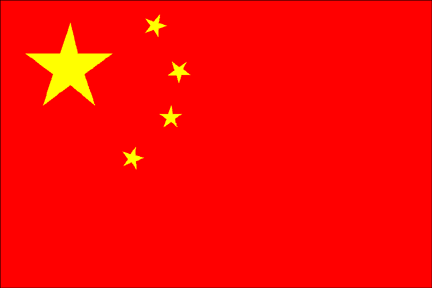Index | Search |






The central institution of the Chinese intelligence community was the Communist Party of China [CPC] prior to 1949 was Central Department of Social Affairs, which subsequently became the Central Investigation Department [replaced by the Ministry of State Security in 1983]
During the Yanan period, the Central Department of Social Affairs provided CPC leaders with reports on the world situation and on the major events and issues taking place abroad. These efforts were based on news reports of foreign press agencies, and a limited number of foreign newspapers and books. During the 1946-1949 warfare between Kuomintang and Communist troops, the intelligence provided by the Central Department of Social Affairs proved instrumental in the Communist's battlefiled victories. After the Party consolidated state power in China, the intelligence system played an increasingly important role. Li Kenong, head of the department, also held several other leadership positions, including head of the Central Investigation Department, deputy chief of General Staff, and vice minister of foreign affairs, and attended meetings of the Political Bureau as an observer.During the 1950's every Chinese embassy had an Investigation and Research Office for intelligence collection by staff from the Central Investigation Department. Analytical tasks were the responsibility of the Central Investigation Department Eighth Bureau, publicly known since 1978 as the "Institute of Contemporary International Relations."
Shortly before the Great Proletarian Cultural Revolution, Li Kenong died and was succeeded by Luo Qingchang. Kang Sheng [who had once headed the Central Department of Social Affairs] was by that time a member of the CPC Political Bureau, and he assumed responsibility for the work of the Central Investigation Department.
During the Cultural Revolution the Central Investigation Department was abolished, most of its senior leadership was sent down to the countryside for re-education, and most of its activities and assets were absorbed by the PLA General Staff Second Department. The Central Group for the Examination of Cases, composed of Central Investigation Department cadres acting on orders of Kang Sheng, were instrumental in the removal from power of individuals such as Deng Xiaoping.
With the death of Lin Biao in the early 1970's the Department was re-established. When Hua Guofeng and Wang Dongxing assumed power in 1977 they sought to enlarge the Central Investigation Department and expand the CPC's intelligence work as part of their more general efforts to consolidate their leadership positions. This initiative was resisted by Deng Xiaoping, who had returned to power. Deng Xiaoping argued that the intelligence system should not use Chinese embassies to provide cover, and that intelligence personnel should be sent abroad under the cover of reporters and businessmen. Consequently, the Central Investigation Department withdraw its men from Chinese embassies abroad, apart from a small number of secret intelligence agents.
Zhou Shaozheng, a veteran of the Central Investigation system, became head of the General Office of the Central Investigation Department in 1976. During the CPC's 12th National Congress in 1982 Zhou Shaozheng was informed against by a bureau chief under the Central Taiwan Affairs Office, and was accused of moves against Premier Zhou Enlai during the latter's mourning period. Investigation results later showed that Zhou Shaozheng was innocent, though he had lost the chance to be considered for the post of Minister of State Security.
In 1983 Liu Fuzhi, secretary general of the Political Bureau of the CPC Central Committee and minister of Public Security, proposed the establishment of a Ministry of State Security that would merge the whole Central Investigation Department with the counter-intelligence elements of the Public Security Ministry. This proposal was approved by the Political Bureau of the CPC Central Committee.
In June 1983 the National People's Congress, perceiving a growing threat of subversion and sabotage, established the Ministry of State Security under the State Council. The new ministry was charged with ensuring "the security of the state through effective measures against enemy agents, spies, and counterrevolutionary activities designed to sabotage or overthrow China's socialist system." At its inception, the ministry pledged to abide by the state constitution and the law and called upon the citizenry for their cooperation, reminding them of their constitutional obligations to "keep state secrets" and "safeguard the security" of the country.
Lin Yun, deputy minister of Public Security, was appointed the first minister of the Ministry of State Security Ministry. However in 1985 a department head of the Anti-Espionage Bureau (a cadre from the Ministry of Public Security) defected to the United States. After the incident, Lin Yun and the chief of the Anti-Espionage Bureau were both removed from their posts.
 Jia Chunwang was appointed Minister of State Security in 1985, following the dismisal of Lin Yun. Both the public security and central investigation elements of the Ministry insisted that Lin Yun be replaced by one of their own cadres. To settle this conflict, the CPC leadership appointed Jia Chunwang, as he was an outsider with ties to neither element.
Jia Chunwang was appointed Minister of State Security in 1985, following the dismisal of Lin Yun. Both the public security and central investigation elements of the Ministry insisted that Lin Yun be replaced by one of their own cadres. To settle this conflict, the CPC leadership appointed Jia Chunwang, as he was an outsider with ties to neither element.
Chinese intelligence agents are generally assigned to overseas postings for terms of six years, 10 years, or long-term residence depending on the nature of the job or on performance. In mid-September 1996, the Central Military Commission and the State Council approved the report of the plan drawn up by the General Staff Department and Ministry of State Security on the consolidation, readjustment, and reinforcement of intelligence in Hong Kong, Macao, and abroad. Nearly 120 intelligence agents who had been operating in the United States, Canada, Western Europe, Northern Europe, and Japan as industrialists, businessmen, bankers, scholars, and journalists, were recalled.
